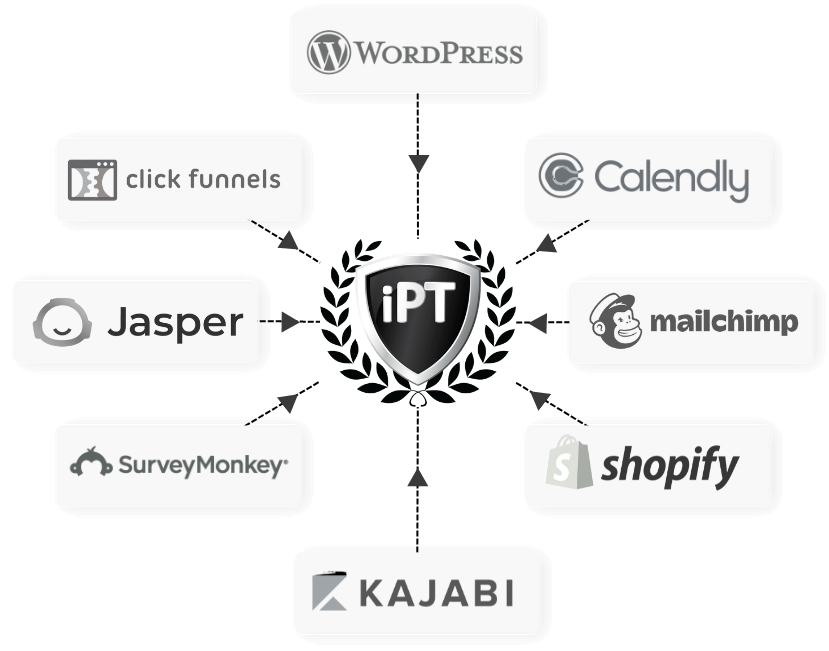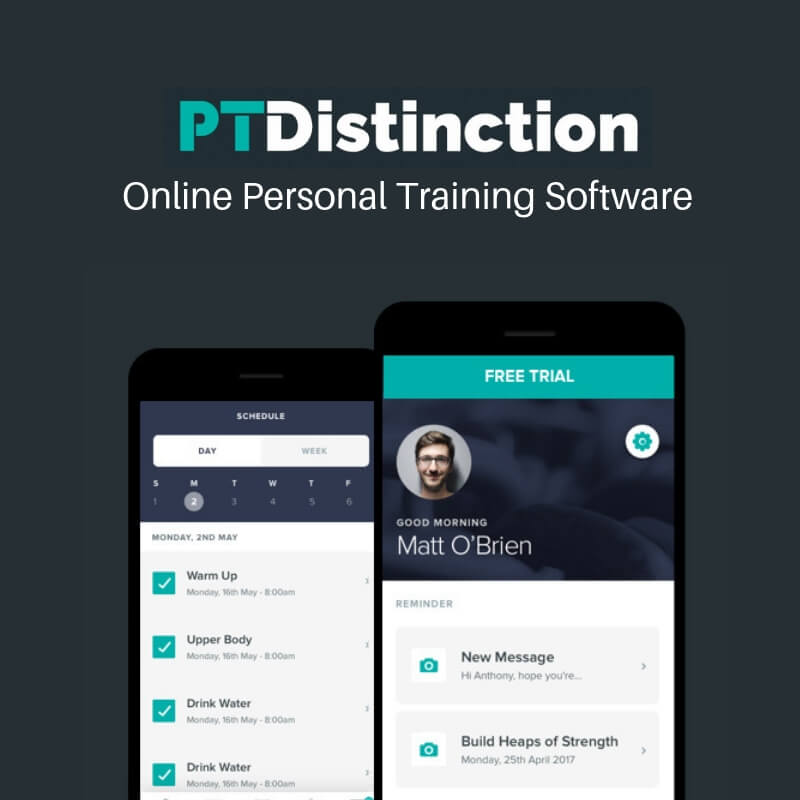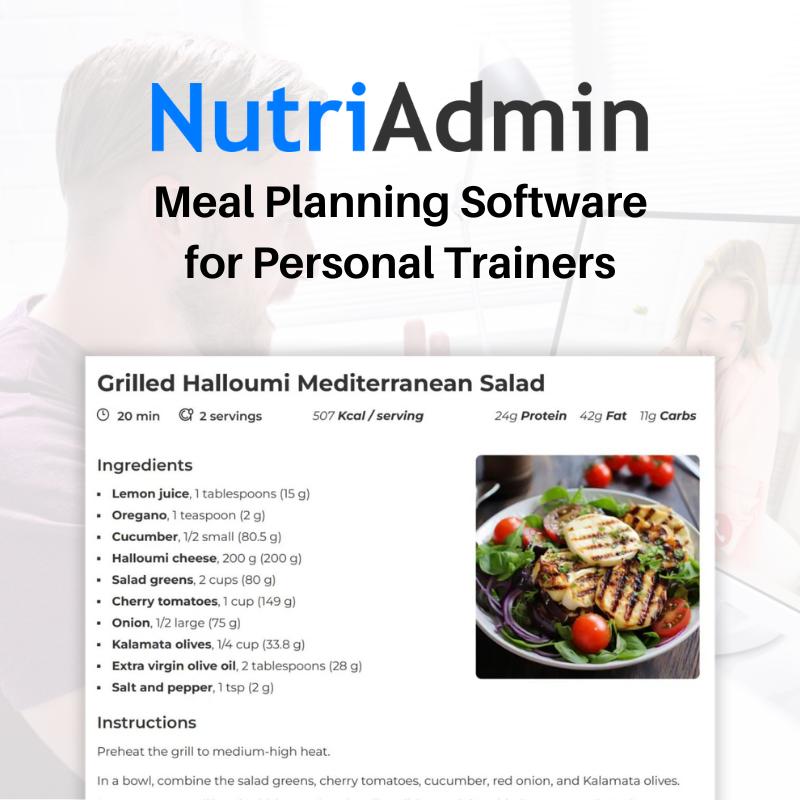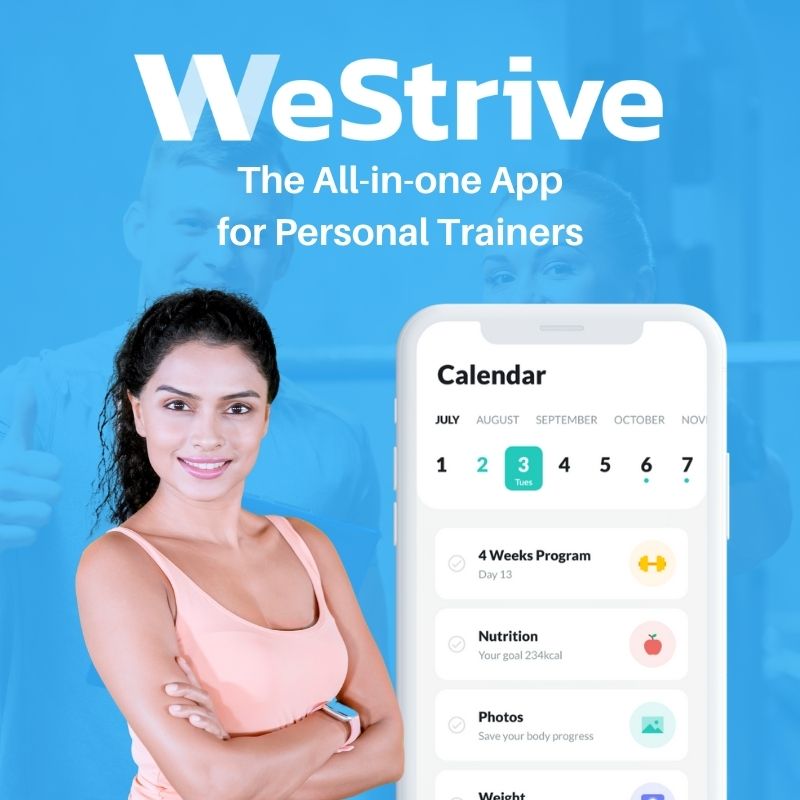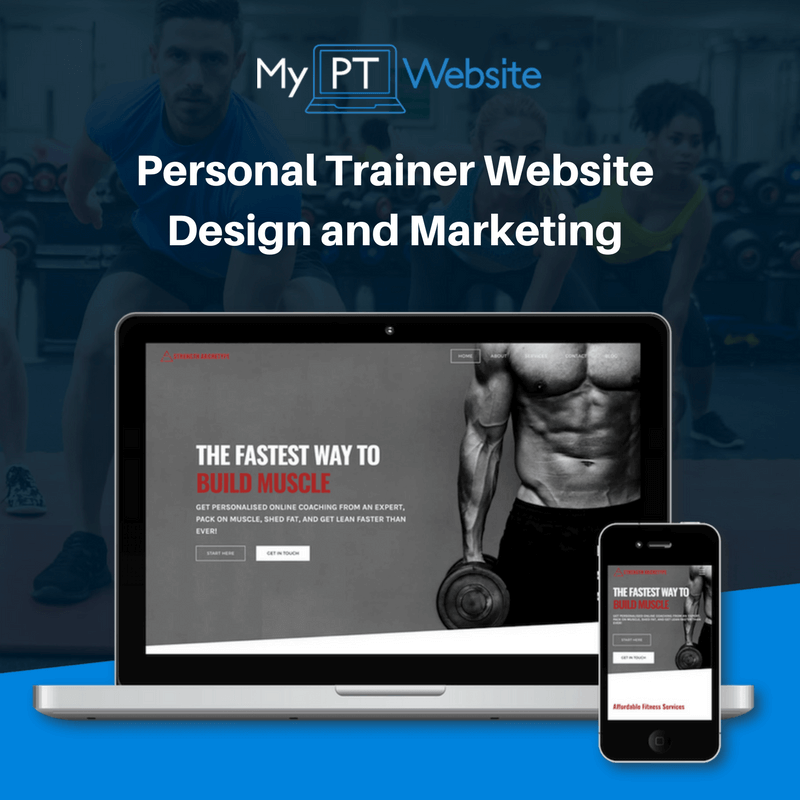|
Introduction
What You'll Learn
It's time to put what we've learned into practice and look at how you can turn this into either a career or something you do on the side as a passion project that brings in some extra income and just lets you help people alongside another income.
Why is This Important?
People are becoming more and more accustomed to the idea of being coached online and more and more people are also coming to the understanding that looking after their overall health and wellbeing is something that's definitely worth doing and something that professionals like you can help them with.
It's time to put what we've learned into practice and look at how you can turn this into either a career or something you do on the side as a passion project that brings in some extra income and just lets you help people alongside another income.
Why is This Important?
People are becoming more and more accustomed to the idea of being coached online and more and more people are also coming to the understanding that looking after their overall health and wellbeing is something that's definitely worth doing and something that professionals like you can help them with.
Dietician or Nutrition Coach?
A lot of people come into this for the wrong reasons. They think it's just about the money and if you're thinking, "I want to help people, that is going to set you apart."...Well, what pathway do you take? There were a lot of people, well, there were an awful lot of questions that you could ask about this. And we at BTN Academy get asked all the time, "Which course is best for me? How should I work in the nutrition space? How can I best make myself a professional? And how can I best move into this area?
That's what we're going to chat about now because there are different pathways that you can take. The main difference is going to be being a dietician or a nutritionist or nutrition coach. For the purpose of this talk, nutritionist and nutrition coach are pretty much synonymous. What we usually advise people is that you actually use the title of nutrition coach rather than nutritionist. The reason for that is because nutrition coach better describes what a true professional in this industry does.
You work with someone to make better choices, you help them to understand their goals, help them understand their values, and show them how their behavior is contravening their values and what it is they want to do, and then help them come up with better strategies so that they can achieve better health through proper nutrition. That's coaching. That's something you do on a continual basis. The word nutritionist conjures an idea similar to this, what you see in front of you. It's a guy that sits there surrounded by fruits and vegetables who does questionnaires with people and then tells them what to eat, but that's not what you do as a professional.
In fact, that's actually more close to what you would do as a dietician. The difference between a nutritionist or a dietician is that a dietician, first of all, usually has more training. To be a dietician, you need to do a degree, often a master's degree and then be registered with a body called the HCPC. What they do is they ensure that you're continuing your CBD and you need to be registered with them in order to practice as a professional. Nutritionist and nutrition coach are not however protected titles.
This means that you don't need to be registered with any particular governing body and in fact you don't actually need to do qualifications to attend these titles. There is some nuance here though, because while it is often said and it's often understood that nutritionist and nutrition coach are, they're not protected. That means you could call yourself a nutritionist now and start selling your services. You would need to be insured to do that though. If anything was to ever go wrong or if any client was to ever try to sue you or take you to court or anything, your insurance would not stand up because you would not be qualified to do what it is that you say you're doing.
While it is the case that these titles are unprotected from a legal standpoint, from an insurance standpoint, it's very important to be qualified. But the difference between a nutritionist and dietician outside of the training is that a dietician can work prescriptively and they can work clinically. That means that a dietician can work to diagnose, treat or cure elements and they can prescribe nutritional supplemental packages and programs and approaches to people to help with that. You might have someone who for example, has a gastrointestinal problem and they could be prescribed a nutritional intervention by a dietician.
The dietician could put them on an exclusion diet. They could put them on a FODMAP diet or anything like that. They could put them on a specialist diet. Similarly, when people are coming out of operations or they're going into operations or they've got something that prevents them from absorbing certain nutrients or for example, a lot of people who have digestive issues like Crohn's can't adequately digest certain vitamins including vitamin B12, so a dietician would be able to prescribe that and then B12 supplements or injections. A nutritionists wouldn't be able to do any of that.
That's what we're going to chat about now because there are different pathways that you can take. The main difference is going to be being a dietician or a nutritionist or nutrition coach. For the purpose of this talk, nutritionist and nutrition coach are pretty much synonymous. What we usually advise people is that you actually use the title of nutrition coach rather than nutritionist. The reason for that is because nutrition coach better describes what a true professional in this industry does.
You work with someone to make better choices, you help them to understand their goals, help them understand their values, and show them how their behavior is contravening their values and what it is they want to do, and then help them come up with better strategies so that they can achieve better health through proper nutrition. That's coaching. That's something you do on a continual basis. The word nutritionist conjures an idea similar to this, what you see in front of you. It's a guy that sits there surrounded by fruits and vegetables who does questionnaires with people and then tells them what to eat, but that's not what you do as a professional.
In fact, that's actually more close to what you would do as a dietician. The difference between a nutritionist or a dietician is that a dietician, first of all, usually has more training. To be a dietician, you need to do a degree, often a master's degree and then be registered with a body called the HCPC. What they do is they ensure that you're continuing your CBD and you need to be registered with them in order to practice as a professional. Nutritionist and nutrition coach are not however protected titles.
This means that you don't need to be registered with any particular governing body and in fact you don't actually need to do qualifications to attend these titles. There is some nuance here though, because while it is often said and it's often understood that nutritionist and nutrition coach are, they're not protected. That means you could call yourself a nutritionist now and start selling your services. You would need to be insured to do that though. If anything was to ever go wrong or if any client was to ever try to sue you or take you to court or anything, your insurance would not stand up because you would not be qualified to do what it is that you say you're doing.
While it is the case that these titles are unprotected from a legal standpoint, from an insurance standpoint, it's very important to be qualified. But the difference between a nutritionist and dietician outside of the training is that a dietician can work prescriptively and they can work clinically. That means that a dietician can work to diagnose, treat or cure elements and they can prescribe nutritional supplemental packages and programs and approaches to people to help with that. You might have someone who for example, has a gastrointestinal problem and they could be prescribed a nutritional intervention by a dietician.
The dietician could put them on an exclusion diet. They could put them on a FODMAP diet or anything like that. They could put them on a specialist diet. Similarly, when people are coming out of operations or they're going into operations or they've got something that prevents them from absorbing certain nutrients or for example, a lot of people who have digestive issues like Crohn's can't adequately digest certain vitamins including vitamin B12, so a dietician would be able to prescribe that and then B12 supplements or injections. A nutritionists wouldn't be able to do any of that.
Clinic Vs Non Clinic
As a dietician, you can work with families, some people get TV appearances on certain different TV shows and there are an awful lot of opportunities available to you if you are a dietician. As we say though that does require a degree and being able to work clinically is not necessary for the majority of you guys who I'm assuming are going to work non clinically. This is where you can help people to improve their body composition. This is where you can help people improve their overall wellbeing.
The vast, vast, vast majority of people working in the nutrition space, especially in the health and wellbeing fitness space are nutritionists or nutrition coaches. Some of them will have degree training but some of them won't and it's very important for you guys to remember that degrees are very useful. Getting a degree is a major thing.
I would never discourage anyone from getting one if you're looking to get one, but do remember that a degree is no longer the only way that you can get advice and you're no longer the only way you can get an education. It's very important to be able to vet the education that you do get because it's very possible to get courses that are designed by people that don't know what they're doing. But working in a regular course can give you the knowledge and the skills that you need to be able to work in a nonclinical setting and this way you're able to really help people change their lives.
The vast, vast, vast majority of people working in the nutrition space, especially in the health and wellbeing fitness space are nutritionists or nutrition coaches. Some of them will have degree training but some of them won't and it's very important for you guys to remember that degrees are very useful. Getting a degree is a major thing.
I would never discourage anyone from getting one if you're looking to get one, but do remember that a degree is no longer the only way that you can get advice and you're no longer the only way you can get an education. It's very important to be able to vet the education that you do get because it's very possible to get courses that are designed by people that don't know what they're doing. But working in a regular course can give you the knowledge and the skills that you need to be able to work in a nonclinical setting and this way you're able to really help people change their lives.
Getting Qualified
As we say, it is important to be qualified. University is fantastic method as I've said, but the problem is that university will take you three to four years depending on the course that you choose and usually that's going to be full time. So, that means that you're not really able to earn an income alongside it. You can't do so of cost to a certain extent, but most people aren't able to work full time or earn a full time wage at university. University also for costs about 27 grand nowadays, it is just quite the investment.
If you're looking at other courses, a lot of the courses that you're able to do in nutrition are available online. There are multiple options to choose from. I'm not just going to tell you about ours, but the BTN Academy is one. The best thing to do if you all look into an online course, whether you choose ours or not, is to ensure that you're choosing one that is regulated by some body.
There are a lot of standalone courses that are not externally regulated in any way and the problem is that this leaves you open to malpractice maladministration and potentially just getting incorrect information. An externally regulated course is going to ensure with all of the marking is properly vetted so that everybody is marked fairly. There was no favoritism, there was no people who things are just let slide. But also if you've got any special learning requirements or for example, you may have ASD or you may have dyslexia or something like that, that is going to be catered for on a regular cost to a much higher level than it will do on a non-regular cost because non-regulated courses don't have to do that.
As a regular course, you're expected to do that and an external verify will be regularly checking up to ensure that the course is delivered adequately. Similarly on a regular course, it's not just the assessments are very well vetted. The assessments have to be extremely thorough. With a regular course, you will get a syllabus ahead of time, which will show you the learning outcomes that you're going to get from that course, and then the assessments will be settled to make sure that you actually get out of the course what you want it to. It's not just a case that you've watched some videos and read some books and hopefully you learn something because as you and I probably know, it's very likely that you've got at least 15 books in your house that you've never opened.
If you're looking at other courses, a lot of the courses that you're able to do in nutrition are available online. There are multiple options to choose from. I'm not just going to tell you about ours, but the BTN Academy is one. The best thing to do if you all look into an online course, whether you choose ours or not, is to ensure that you're choosing one that is regulated by some body.
There are a lot of standalone courses that are not externally regulated in any way and the problem is that this leaves you open to malpractice maladministration and potentially just getting incorrect information. An externally regulated course is going to ensure with all of the marking is properly vetted so that everybody is marked fairly. There was no favoritism, there was no people who things are just let slide. But also if you've got any special learning requirements or for example, you may have ASD or you may have dyslexia or something like that, that is going to be catered for on a regular cost to a much higher level than it will do on a non-regular cost because non-regulated courses don't have to do that.
As a regular course, you're expected to do that and an external verify will be regularly checking up to ensure that the course is delivered adequately. Similarly on a regular course, it's not just the assessments are very well vetted. The assessments have to be extremely thorough. With a regular course, you will get a syllabus ahead of time, which will show you the learning outcomes that you're going to get from that course, and then the assessments will be settled to make sure that you actually get out of the course what you want it to. It's not just a case that you've watched some videos and read some books and hopefully you learn something because as you and I probably know, it's very likely that you've got at least 15 books in your house that you've never opened.
Next Steps
Because usually when you ask people what their goals are, they'll say, "I would like to lose weight, I'd like to build muscle, I want to look better, blah, blah, blah. And these goals are usually really generic, so we're not just... And so it will be useful to put them in the smart model, but it's not just that. Oftentimes, people set goals that aren't really something that they care about. It's not something that really matches their values. It's a goal that they think they should have based on societal expectations or communication with other people. Or perhaps it's something that they've seen a friend or a family member do.
Rather, it's useful to actually talk to people and really hone down on what it is that they want to get out of your coaching. What would success look like to you is a really powerful question that you can include in consultations to really help a person identify their goal and then identify with that goal. They need that goal to mean something. It needs to be something that really matters to them. Otherwise, they're not really going to achieve it because as soon as things get difficult, if a goal doesn't matter to you, then why would you put the effort in?
Once you've helped someone to identify that goal, you use client-based coaching. Unless you're going to be a dietician where you can stop prescribing things and even then to an extent, you need to be working with the client in the situation that the client is in and helping them to make better decisions. You can't force anybody to do anything. You can't make somebody adhere to a diet and it doesn't matter how well you think you've tailored your diet plan to your client's preferences, they won't stick to it because life doesn't work like that. Things get in the way. They'll have birthdays, they'll have nights out.
Their fridge will break, their partner will want to get a takeaway. Their kids will want to do something else. We'll go to the cinema and they might want a hot dog. There's going to be something that gets in the way. They won't adhere to the plan and then the stuck. Rather you need to be working to help educate your client and help put your client in a position where they're able to make better decisions on their own and the only way you can do that is by increasing their autonomy and using client based coaching. This is something that we emphasize loads on the BTN Academy because it's so fundamental to longterm clients success.
And if you do get longterm clients success, your clients will run and rave about you, they'll refer you to other clients and all of a sudden your client base will grow. If you're only able to get short term results for clients who will stick to a diet plan for a couple of months, you're going to very quickly run out of clients because you'll very quickly run out with people who actually want to live like that. Then you need to practice empathy and active listening. Working with an individual is about more than just asking questions and seeing what their answer is. It's about truly practicing empathy and understanding exactly where the clients come from and why they're doing what they're doing because sometimes a client's going to go off plan.
Sometimes the client's going to "cheat" on their diet. Sometimes clients are going to find it very difficult to fit in exercise or to eat the right way and they're going to find this just as frustrating as you are as a coach and so you need to practice empathy with them because as soon as you even somewhere in your subconscious start to judge, the client start to think they're just being lazy, start to think they're just making excuses. As soon as you develop that mindset, it becomes extremely difficult to come back to a place of positivity and a place where you can work forward.
Rather, it's useful to actually talk to people and really hone down on what it is that they want to get out of your coaching. What would success look like to you is a really powerful question that you can include in consultations to really help a person identify their goal and then identify with that goal. They need that goal to mean something. It needs to be something that really matters to them. Otherwise, they're not really going to achieve it because as soon as things get difficult, if a goal doesn't matter to you, then why would you put the effort in?
Once you've helped someone to identify that goal, you use client-based coaching. Unless you're going to be a dietician where you can stop prescribing things and even then to an extent, you need to be working with the client in the situation that the client is in and helping them to make better decisions. You can't force anybody to do anything. You can't make somebody adhere to a diet and it doesn't matter how well you think you've tailored your diet plan to your client's preferences, they won't stick to it because life doesn't work like that. Things get in the way. They'll have birthdays, they'll have nights out.
Their fridge will break, their partner will want to get a takeaway. Their kids will want to do something else. We'll go to the cinema and they might want a hot dog. There's going to be something that gets in the way. They won't adhere to the plan and then the stuck. Rather you need to be working to help educate your client and help put your client in a position where they're able to make better decisions on their own and the only way you can do that is by increasing their autonomy and using client based coaching. This is something that we emphasize loads on the BTN Academy because it's so fundamental to longterm clients success.
And if you do get longterm clients success, your clients will run and rave about you, they'll refer you to other clients and all of a sudden your client base will grow. If you're only able to get short term results for clients who will stick to a diet plan for a couple of months, you're going to very quickly run out of clients because you'll very quickly run out with people who actually want to live like that. Then you need to practice empathy and active listening. Working with an individual is about more than just asking questions and seeing what their answer is. It's about truly practicing empathy and understanding exactly where the clients come from and why they're doing what they're doing because sometimes a client's going to go off plan.
Sometimes the client's going to "cheat" on their diet. Sometimes clients are going to find it very difficult to fit in exercise or to eat the right way and they're going to find this just as frustrating as you are as a coach and so you need to practice empathy with them because as soon as you even somewhere in your subconscious start to judge, the client start to think they're just being lazy, start to think they're just making excuses. As soon as you develop that mindset, it becomes extremely difficult to come back to a place of positivity and a place where you can work forward.

